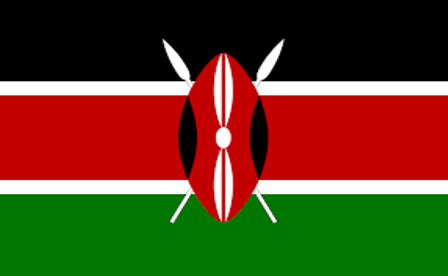 Kenya’s Ministry of Health has announced that it will expand the use of the world’s first malaria vaccine, RTS,S/AS01 (or RTS,S), in the country.
Kenya’s Ministry of Health has announced that it will expand the use of the world’s first malaria vaccine, RTS,S/AS01 (or RTS,S), in the country.
The decision to expand the use of the vaccine was announced during a stakeholder forum attended by the CS Health representative, Dr. Andrew Mulwa, in Nairobi today.
The expansion follows a recommendation from the Kenya National Immunization Technical Advisory Group (KENITAG) for use within Kenya’s lake-endemic region and the 2021 World Health Organization (WHO) recommendation for broader use of the vaccine among children in sub-Saharan Africa and in other regions with moderate to high P. falciparum malaria transmission.
Kenya is one of three countries, along with Ghana and Malawi, where the RTS,S malaria vaccine is already in use, following the 2019 start of pilot or phased introduction in parts of the country. Since then, Kenya has provided more than one million doses of the four-dose malaria vaccine to children across eight counties, and close to 400,000 children have received at least one dose of the vaccine.
“We are thrilled to announce today that more children in Kenya will be able to benefit from the life-saving protection offered by the world’s first malaria vaccine,” said Hon. Susan Nakhumicha Wafula, Cabinet Secretary for Health, Kenya.
Since September 2019, Kenya’s National Vaccines, and Immunization Programme (NVIP) working collaboratively with the Division of National Malaria Program (DNMP) has provided the malaria vaccine as part of routine immunization in 26 sub-counties across eight counties in Western Kenya, namely Homabay, Kisumu, Migori, Siaya, Busia, Bungoma, Vihiga, and Kakamega.
To reach more children with the vaccine, the Ministry of Health is scaling up malaria vaccination in an additional 25 sub-counties within the eight lake-endemic counties. This has been made possible by funding from the US-based Open Philanthropy to PATH for initial expansion of vaccine use in the pilot areas of Kenya, Ghana, and Malawi through 2023, using vaccine doses donated by GSK, the manufacturer.
“In the coming years, our objective is to continue to expand malaria vaccination to other parts of the country, as more supplies of the vaccine become available,” said Dr Lucy Mecca, Head of the National Vaccines and Immunisation Program (NVIP).
Phased introduction in additional countries will begin as early as late 2023. Some 12 countries in Africa have already applied for funding from Gavi to introduce the vaccine into their routine immunization programs, with more expected to follow.
The use of the RTS,S malaria vaccine has the potential to prevent millions of cases of malaria, particularly among young children in sub-Saharan Africa, where the burden of the disease is highest. Malaria is a leading cause of death among children under five in the region.
The expansion of the vaccine’s use in Kenya is a significant step forward in the fight against malaria and underscores the country’s commitment to achieving the WHO’s goal of reducing malaria cases and deaths by at least 90% by 2030.
As the world continues to grapple with the COVID-19 pandemic, it is essential to remember that other diseases, like malaria, continue to pose a significant threat to global health. The expansion of the use of the RTS,S vaccine in Kenya is a reminder that, even in challenging times, progress can still be made in the fight against preventable diseases.

